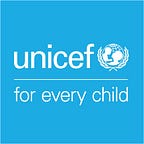Seeking asylum in Europe
Having risked all to get to Europe, many refugee and migrant children find new obstacles on their path to asylum.
Hundreds of thousands of refugee and migrant children have made their way to Europe. In 2016, more than 95,000 have applied for asylum. However, after having braved numerous dangers and hardships on their journey to reach the European continent, they often end up facing new problems and obstacles blocking their path to asylum at their destination country of choice.
(Left) Jannat Raslan, 7, and her mother Amira, in a family of five, arrived in Germany in December 2015. The Raslans, from the Syrian city of Homs, live in a refugee shelter in Berlin’s Prenzlauer Berg neighbourhood.
“[O]ur aim was to come here, feel peace and feel safe,” Mrs. Raslan said.
Khaled Raslan, playing football with sons Karam, 4, and Amr, 7, in a neigbourhood park near the shelter, spends much of his time following up on the family’s asylum application.
“The process is a lot slower than we expected,” he says. “I spend so long there, at the different offices.”
Mrs. Raslan (foreground-left), with friends and her family in the park, says: “[W]e came here as a family, to have a new life, learn German culture.”
She is now earning a small salary teaching English to refugees, and her twins Jannat and Amr are now in school.
Mr. and Mrs. Raslan, with Amr, their youngest, shop in the neighbourhood supermarket. Families are not allowed to cook at the shelter.
Mrs. Raslan says, however: “All of these problems we’re having are really small, because the act of bringing [taking in] refugees itself is so big.”
Mr. Raslan (right), his sons and another refugee, brush their teeth in a communal bathroom at the shelter. The Raslans joined hundreds of other refugees at this shelter in June 2016, after living in a school gymnasium since December.
“It was so difficult there,” Mr. Raslan said.
“We’re not living in an emergency situation anymore, we’re now living more normally … and two of our kids are at school,” he says. “Now it’s better than before, and the next stage will be better still.”
His sons fall asleep as he tells them a bedtime story.
Sajad Al-Faraji, 15, and his family, from Basra in Iraq, reached Austria in November 2015. Paralysed from the waist down since birth, Sajad is trying to get into school. He missed a chance to go to a school for children with disabilities when he fell and broke a leg several months ago.
Sajad and his family, who are living in an abandoned hospital in Vienna, are becoming part of a new community. No longer timid in the city, they now get around with confidence and ease. Sajad and his mother, Mona Al-Hammoudi, take a tram to a benefit event for refugees needing shelter.
(Centre-right) Sajad (in wheelchair), his mother (wearing beige veil) and his sister, Houda Al-Malek (behind him, drinking coffee) enjoy the food and entertainment at the annual event, held at a stadium in the capital.
“When I see Sajad smile, I’m happy,” Houda says.
Everyone in the family wants to learn German to better integrate. The siblings’ 14-year-old brother, Zein Alabdien, heading to school, takes a language class five days a week.
“For four months, every day, I went to the [management] office and said ‘I want to go to school’,” Zein said.
“It’s the best thing that’s happened since I’ve been here, and someone from the family has to learn German so they can translate,” he adds.
The teenager, who has become the family’s de facto ambassador since he began attending school, stretches with his classmates between lessons.
Sajad, with a friend outside the stadium. He is now lobbying the shelter’s management to get into school like his brother.
“I want to learn the language, find a medical solution for my legs. My dream is to be able to walk.”
The family believes that their asylum application is on track.
Ali Abdul-Halim, 18, and his 16-year-old brother, Ahmad, who are from Baalbek in Lebanon, were among nearly 96,000 unaccompanied minors who reached Germany and applied for asylum in 2015. Ali, in Peine District in Lower Saxony State, heads to a Lebanese friend’s restaurant.
Ali works as an unpaid intern in a hair salon in Peine, and he and Ahmad live in a children’s shelter in the district. Although Ali has turned 18 and is now considered as an adult by the state, he is being allowed to continue living at the shelter so that he and Ahmad can stay together.
“I can’t make any mistakes, because I am responsible for him,” Ali says, continuing his role as parent to his younger brother — as he did during their dangerous journey.
Ahmad attends an integrated school with other refugees and German children in the district, where he is doing well.
“Of course I would love to be a teenager and just enjoy life here in Germany,” Ali says, “but by doing that, I would be jeopardizing not only my brother’s future, but my own too.”
He copes with the stress he feels every day by lifting weights at a nearby gym in the district
The brothers serve a meal at the shelter. “The best part of this journey has been coming here.… The difficult part is waiting to be processed,” Ali states.
“We have lots of problems in Lebanon. I hope I get my asylum papers and that they don’t tell me to go back to Lebanon,” says Ahmad.
“Germany is very beautiful … it’s safe, organized,” Ali says. “I’m happy we left Lebanon and that we made it here safely.”
The brothers later learned that their application for asylum was rejected, leaving them facing an uncertain future. Ali, in the group shelter.
Learn more about the refugee and migrant crisis.
